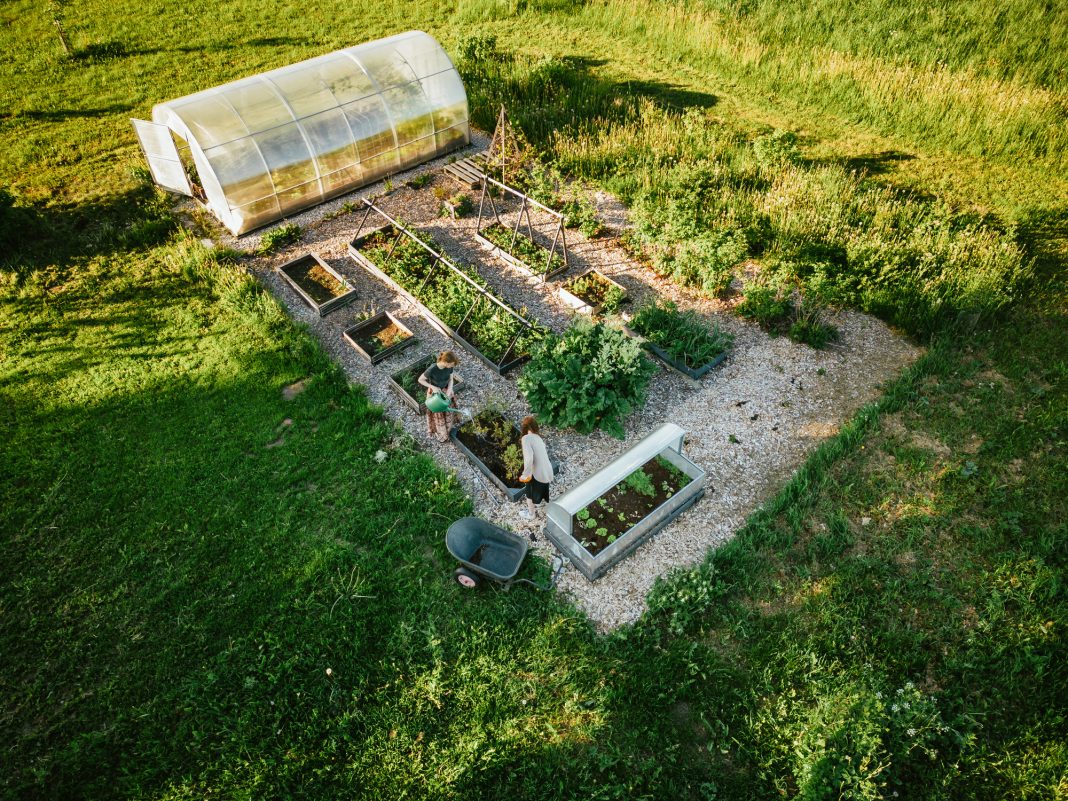Rewards for sustainable gardening could include reductions to council tax, water bills or assistance with resources
New research from the University of Sheffield suggests that homeowners should be rewarded for efforts toward sustainable gardening, to promote a healthier urban landscape.
Gardens are becoming increasingly important in the battle against the extreme effects of climate change, and if urban gardeners have access to sustainable gardening, there will be numerous benefits for the environment and communities.
Encouraging more gardeners to use environmentally sensitive techniques
Sustainable gardening not only provides quality habitats for wildlife but also improves local air quality, health and well-being, providing people with the opportunity to grow their own food, connect with nature and reduce energy bills by better insulating homes.
However, to ensure gardens are well stocked with plants, financial incentives should be considered. Researchers suggest that policymakers should offer incentives, such as council tax or water bill discounts. This in turn would also encourage more gardeners to use environmentally sensitive techniques.
Cities have lost as much as 50% of their ‘green’ garden space over the last two decades
Professor Ross Cameron, lead of the study, said: “Gardens account for a third of all our urban areas and are vital spaces in terms of keeping our buildings and city environments cool in summer, absorbing rain to avoid flash flooding and providing an important refuge for wildlife.
“Gardens need to be green and full of plants to be beneficial to the local environment, and some types of garden are more beneficial than others.
“The paradox is that many gardens are not actually green and some trends in garden design can be very damaging to the urban environment. We have paved them over to house the car, or provide sterile patio space; factors that increase urban temperatures and increase flooding risk.”
The ecosystem services of landscapes
However, not all gardens are beneficial to our health and environment. Sustainable gardening needs to be regulated for particular landscapes.
For instance, gardens that are dominated by impermeable hard surfaces, such as concrete pavers and with limited vegetation and habitat provision for wildlife (‘Grey’) are likely to provide few ecosystem services.
Conversely, those which are vegetated but have limited plant diversity and are intensively managed (‘Intensive’) will provide intermediate ecosystem services.
Gardens with a high proportion of vegetation, low energy and other resource inputs, and mimic natural vegetation stands or transitional ecotones (‘Green’ gardens) will tend to maximise urban ecosystem services.
Other benefits to the urban environment policymakers can make could also be banning environmentally damaging materials, such as pesticides; or practices such as installing astroturf.
What incentives could policymakers offer to ensure gardens remain green?
- Offer financial rewards such as a reduction in council tax or water bills – for house owners with more than 50% of their garden space planted
- Offer financial incentives toward sustainable gardening, such as planting or maintaining trees in gardens, with appropriate choices based on the size of garden
- Ban or restrict features that damage environmental processes, such as having a maximum area artificial grass can cover and banning synthetic pesticides for home garden use
- Acknowledge that gardens with a high proportion of plants act as a health facility and that planning processes should have mandatory requirements to include and protect, well-planted areas
“Many citizens quickly realised the value of their home gardens during the pandemic lockdowns”
Professor Helen Woolley, Head of the Department of Landscape Architecture at the University of Sheffield, said: “The value of this research is it categorically states the value of a particular landscape type and how that links to different socio-environmental agendas.
“Many citizens quickly realised the value of their home gardens during the pandemic lockdowns, and this academic paper builds on and reinforces what we learned then. It is important that policymakers and planners take note.”











